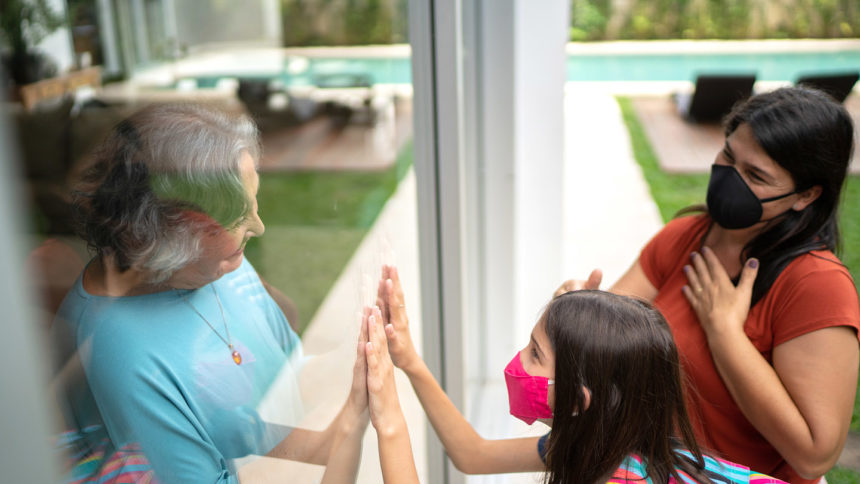
(Credit: FG Trade / Getty Images)
Prioritizing in-person visits, communication and bereavement support can help reduce stress for families of people living with dementia in long-term care facilities, according to a new study.
In a study of the experiences of family caregivers of long-term care residents living with dementia during the pandemic, investigators from Emmanuel College and the University of Minnesota determined that families preferred that in-person visitation opportunities be maximized through COVID-19 vaccination and testing protocols instead of having to visit via video or window.
The investigators also recommended that providers give families regular updates about a resident’s well-being as well as offer bereavement support to help family members address their feelings of grief and loss.
“Good quality LTC care relies on a partnership between families and LTC facilities, and those partnerships have been strained and, in some cases, broken during the pandemic,” the study reads. “Understanding the perspectives of LTC caregivers is critical for formulating LTC policy as the pandemic continues.”
Researchers surveyed 125 family caregivers of residents with dementia between June 2020 and June 2021. Participants included family members who had participated in the Residential Care Transition Module, a randomized controlled trial of counseling and educational programming for dementia caregivers. The trial included families of relatives in assisted living and memory care communities as well as skilled nursing facilities.
Family members shared concerns about COVID-19 infection as well as the difficulty in maintaining contact with relatives due to visitation restrictions, lack of information about relatives’ health and well-being, worries about overburdened staff, fears of relatives dying alone, and the impossibility of bringing relatives home from the long-term care facility.
According to the survey, 79% of participants identified visiting restrictions as a key stressor. Only 21% said that alternative visiting options, including window and video visits, were helpful.
Investigators also identified resources, strategies and practices they perceived as helpful: effective facility infection prevention, good communication with staff members, and creative strategies to connect families with their resident relatives.
The findings, the researchers said, emphasize the need to better integrate family members’ perspectives into formal care delivery in long-term care facilities.
“COVID-19 laid bare how family caregivers are simply not acknowledged as key facets of LTC delivery residential settings, as was evident in participants’ discussions of disrupted care routines, lack of information and opportunities to interact, and residents’ health deteriorating as a result,” the investigators wrote.
The research, published in the December issue of JAMDA, was supported by a grant from the National Institutes of Health.


